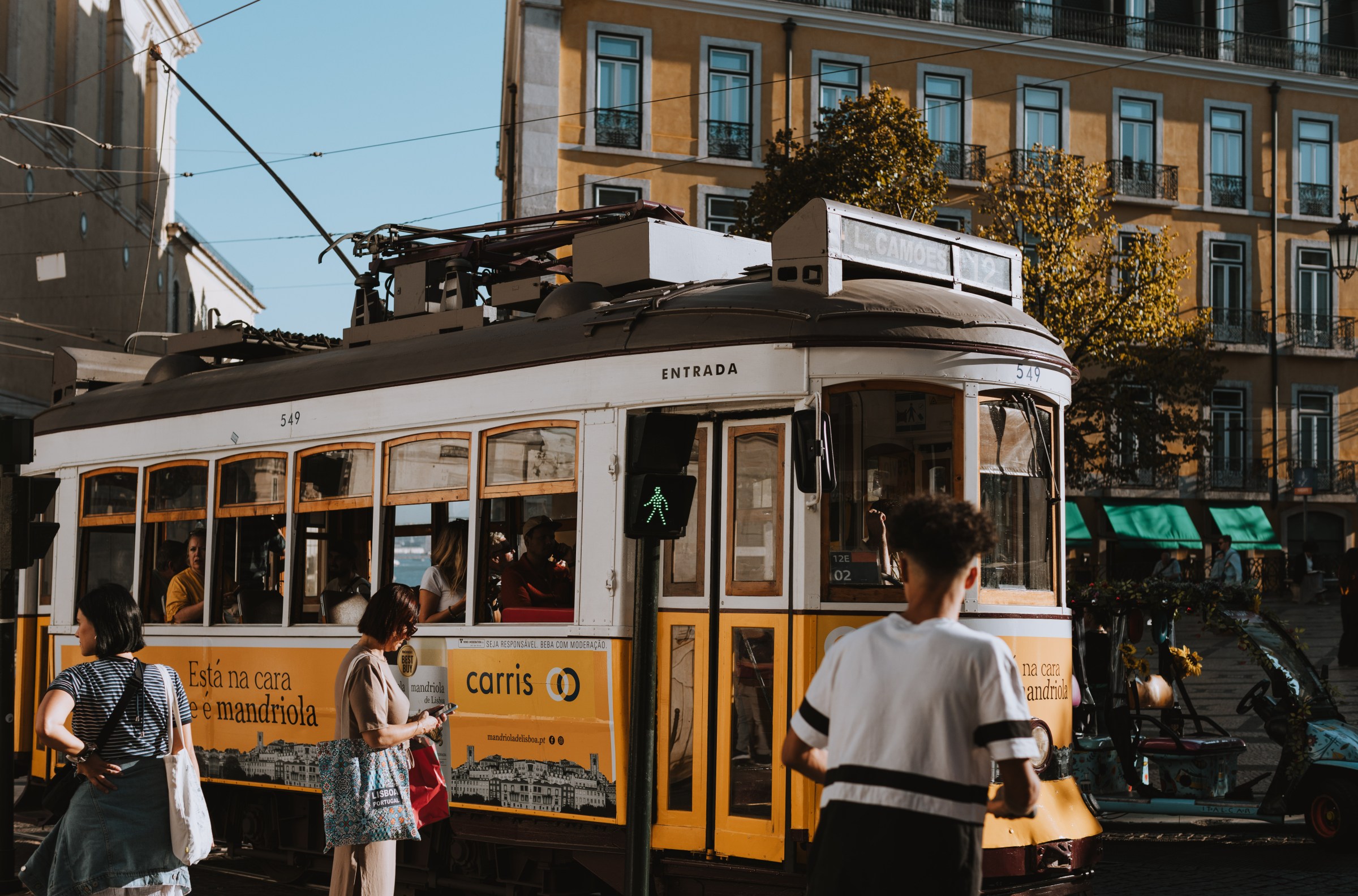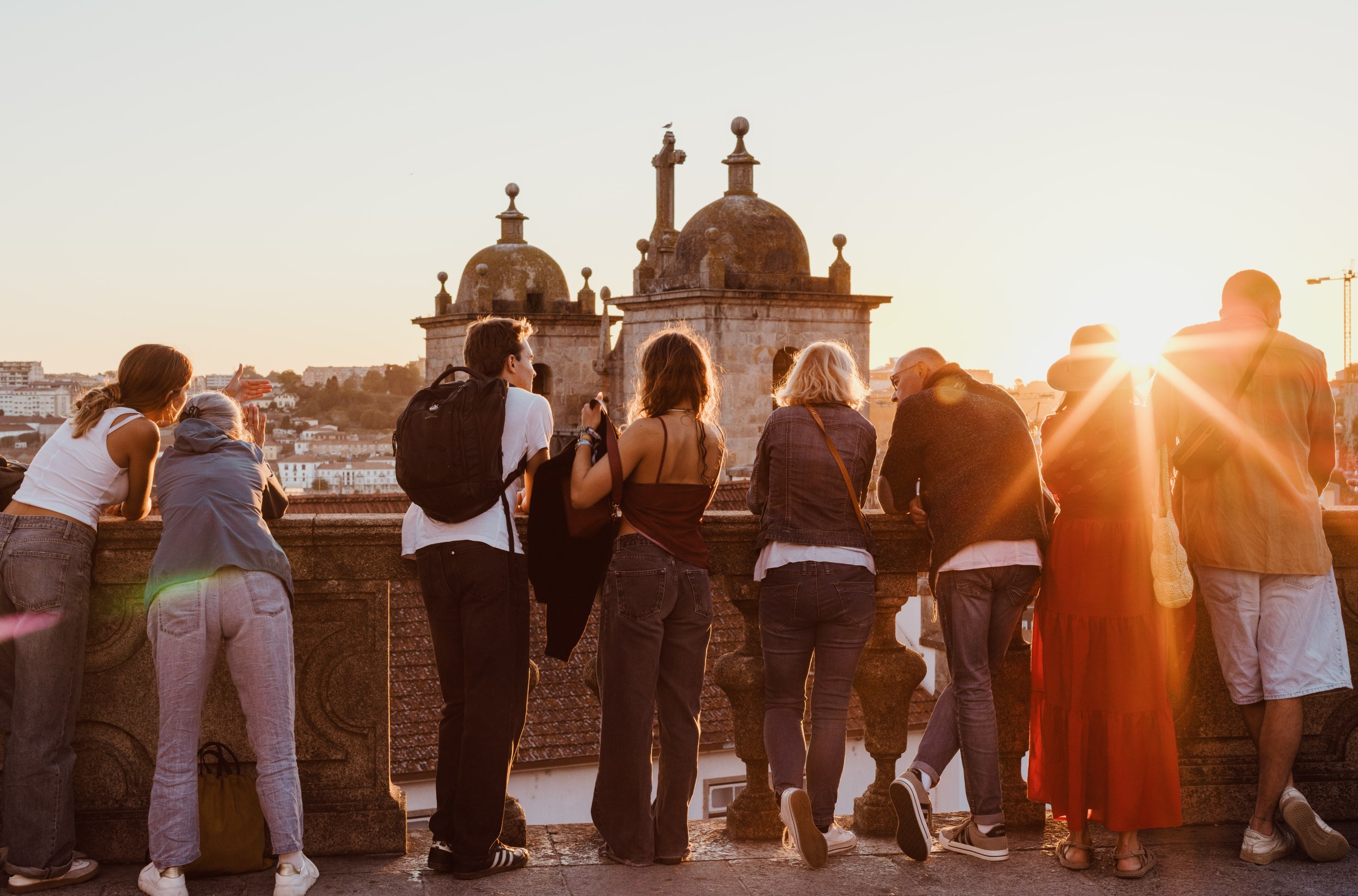Therese Mascardo was done with the daily grind of life in Los Angeles. As a licensed clinical psychologist, she was seeing around 40 clients a week and spending hours in the car commuting.
September 30, 2024:
Therese Mascardo was done with the daily grind of life in Los Angeles. As a licensed clinical psychologist, she was seeing around 40 clients a week and spending hours in the car commuting.
“There’s a pressure that you feel as an American, and in LA, I certainly felt like I needed to work as much as possible, either to make my rent or buy Whole Foods, and so my quality of life really suffered there,” Mascardo, 42, said.
So Mascardo made a radical change in search of an easier lifestyle.
She kept seeing Portugal on lists of great places to live as a “digital nomad,” a fairly recent term for a person who can work remotely from various locations rather than a fixed location. Since 2007, the European country offered would-be nomads a visa that allowed them to live there so long as they were earning money while working for a company from a non-EU nation.
She decided to move to Lisbon in 2018. At first, Mascardo said, it was hard to stop being a “workaholic.” She continued seeing more than 35 clients a week remotely but eventually pared down to around 25 clients per week, a move she could make because Lisbon is so affordable.
She gave up the car, too. “Most of my friends live within a 15-minute walk of my house, or I can take an Uber that costs 10 euros to the other side of town, a maximum of 30 minutes by car,” she said.
And Portugal felt peaceful, too. Mascardo and other digital nomads we spoke with in Portugal cited the prevalence of gun violence in the United States as one factor for leaving.
“It’s crazy to live in a place where every day I don’t wake up and read about a mass shooting,” Mascardo said. “That whole part of my brain that was experiencing trauma in the USA isn’t dealing with that anymore.”

The pandemic turned work in America upside down: Lots of companies went fully remote, which meant knowledge workers in particular had more freedom than ever before to choose where to live without changing jobs, just as Mascardo did. Four years later, however, many companies have called workers back into the office at least some of the time, some for the whole workweek.
Which means some workers are living the digital nomad dream while others are back to long commutes and $15 desk salads.
We wanted to know what these two extremes reveal about how we think about work and how we balance work and life, so a team from Vox’s Today, Explained podcast went to Portugal. We also visited an American city where the five-day, in-office workweek never went away: Miami. We’ll get to Miami tomorrow, but today, we’re exploring how Portugal turned itself into a haven for remote workers and saw mixed results.
Thousands of digital nomads from all over the world have moved to Portugal, many after the onset of the Covid-19 pandemic. Though nomads by their nature are hard to track, some estimates show there are about 16,000 living in Lisbon alone, the bulk from the US.
In 2022, a few years after Mascardo arrived, Portugal began offering a new type of visa as an incentive for digital nomads. The D8 visa allows non-EU/EEA citizens with remote jobs to live and work in the country for up to one year, with a path to permanent residency.
Even before that, Portugal was an attractive place for digital nomads to hang out. After the Great Recession obliterated economic growth in the country, the government set up a generous tax structure and relatively easy visa requirements for certain kinds of foreigners (a.k.a. those with money). The idea was to attract not just people with cash to spend but entrepreneurs and knowledge workers to juice a torpid economy.

It worked, said Luís Carvalho, a professor of economics at the University of Porto in Porto, Portugal. Just look at his own city.
“Twenty years ago, the city was declining very fast. You saw a lot of criminality. Buildings were falling apart,” said Carvalho. One of the oldest city centers in Europe, Porto was usually known for Port wine, not laptop warriors. When foreign workers started showing up, so did a new energy. New skills, higher incomes, entrepreneurialism. Tourism, too.
The urge to travel and visit a new country is baked into digital nomadism, so it’s not surprising that coworking and coliving spaces have popped up there. We accidentally stayed in one in Porto, where we stumbled on a place called Outsite Muoco that looked like a regular hotel. It’s actually a chain of rooms and apartments with locations all over the world catering to longer-term stays and “using the remote work revolution to define a new way of life.” The property in Porto had several coworking spaces, sleek Scandinavian design, and even a library to listen to vinyl records.
We met 25-year-old Gia Lee in the vinyl library while a British punk band played a concert in the basement. She never pictured herself jet-setting around the world while working, but Lee graduated from college right into the pandemic and the worst job market since the Great Recession. “There were no jobs at all in 2020. I was planning to go into a normal ad agency and corporate trajectory but Covid threw a wrench into the situation, and we kind of had to adapt and figure out how to do our own thing,” Lee said.
That meant bouncing right into fully remote work. Lee and two friends founded a marketing agency called NinetyEight that provides brands with insights into the minds of Gen Z. It just made sense to Lee to continue keeping the company fully remote because it’s less expensive and provides more freedom to move around.
The pandemic gave lots of laptop workers like Lee tons of time to consider their living situations and jump the pond, but all this self-actualization had some negative effects for the Portuguese.
Foreign workers, often flush with cash, drove up housing costs. Carvalho and a team estimate an 8.5 percent increase in prices due to foreign workers. That’s been infuriating to a lot of Portuguese people, who are now facing some of the highest housing costs and the lowest median income in Western Europe. Tourism hasn’t helped either. There’s now a movement to get short-term rentals banned in Lisbon.

Mascardo has picked up on a change of sentiment from locals. “Prices have skyrocketed for housing because people show up with their American budgets and just throw their money around, and inflation doesn’t help,” she said.
New hopeful digital nomads are showing up in Portugal every day; more than 2,500 visas were already issued this year.
Carvalho hopes the Portuguese government can find a way to achieve balance. He says it’s important to attract entrepreneurs into the country and that a lot of new skills and technology came to Portugal precisely because of the visa and tax incentives introduced to digital nomads. But policymakers have to consider the impact on Portuguese society as a whole before native citizens of the country are priced out of their own housing market.
“I think you cannot have a decent city without economic growth and without people coming in with skills and talent. So I see policymakers very much as cooks who are trying to combine different ingredients, but the recipe is not there. So sometimes you have to create the recipe yourself.”